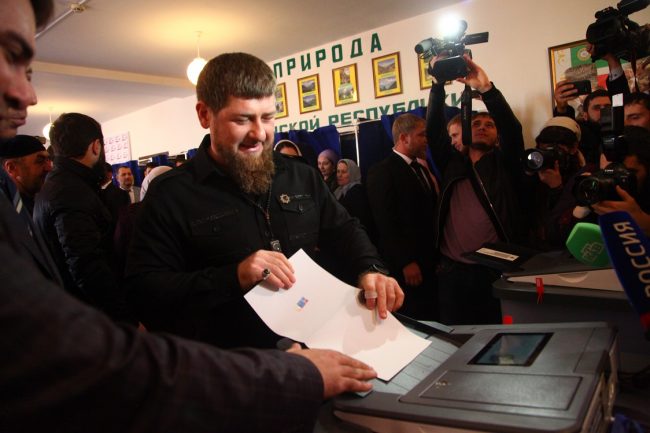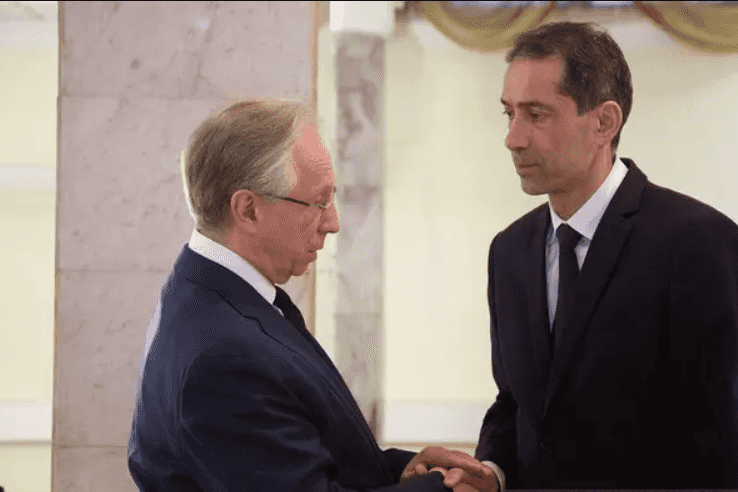

 Russian President Vladimir Putin has been reelected to a fourth term by a landslide majority, amidst widespread reports of electoral violations.
Russian President Vladimir Putin has been reelected to a fourth term by a landslide majority, amidst widespread reports of electoral violations.
According to the official results, turnout in the Sunday’s presidential elections were 67%, with 77% of voters supporting Vladimir Putin. The other candidates with the highest number of votes, the Communist Party’s Pavel Grudinin and nationalist Vladimir Zhirinovsky, were reported to have received only 12% and 6% respectively.
Official voter turnout in the North Caucasus was among the highest in Russia, with around 92% in both Kabardino-Balkaria and Chechnya.
Local media reported and videos circulating online showed numerous violations, including intimidation of observers, physical assaults, ballot box stuffing, and carousel voting.
According to Kavkaz.Realii, several observers were physically assaulted in Makhachkala for trying to record violations on their phones.
Caucasian Knot reported that state employees from Sochi were forced to participate in the elections by their superiors.
Observer Dmitry Klepikov told OVD-Info that ‘psychological pressure’ was exercised on voters in Chechnya, and threats of violence towards a member of the electoral commission recording violations.
Several observers in North Ossetia were either detained by police or pressured to leave polling stations accused of using ‘fake accreditation’.
International reactions
In a phone call to Putin, Azerbaijani President Ilham Aliyev called the elections a ‘convincing victory’. Azerbaijan is itself holding early presidential elections on 11 April. Putin received a congratulatory note from Armenian President Serzh Sargsyan. Putin also received congratulations from the leaders of Kazakhstan, Belarus, Egypt, Venezuela, and Serbia.
The Georgian Foreign Ministry accused Russia of taking ‘yet another step towards [Abkhazia and South Ossetia’s] factual annexation’ by holding elections there. The vast majority of the inhabitants of Abkhazia and South Ossetia hold Russian passports.
Several Western countries released statements the holding of the election in Crimea, which was annexed by Russia on 16 March 2014 — almost exactly four years ago.
According to the OSCE, who sent observers to monitor the election, it ‘took place in an overly controlled environment, marked by continued pressure on critical voices’, despite being ‘efficiently administered’ by the Central Election Commission.






